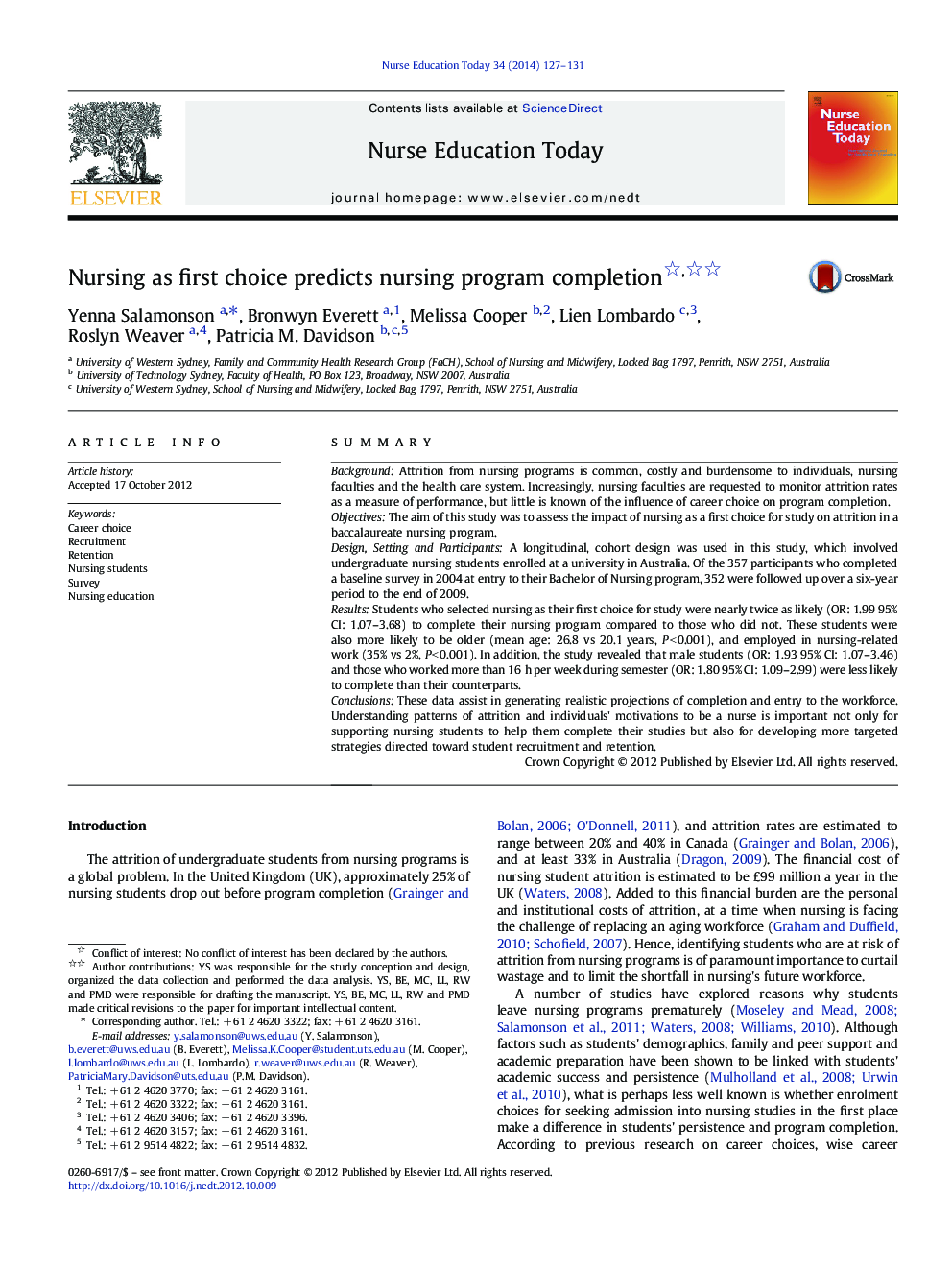| Article ID | Journal | Published Year | Pages | File Type |
|---|---|---|---|---|
| 368396 | Nurse Education Today | 2014 | 5 Pages |
SummaryBackgroundAttrition from nursing programs is common, costly and burdensome to individuals, nursing faculties and the health care system. Increasingly, nursing faculties are requested to monitor attrition rates as a measure of performance, but little is known of the influence of career choice on program completion.ObjectivesThe aim of this study was to assess the impact of nursing as a first choice for study on attrition in a baccalaureate nursing program.Design, Setting and ParticipantsA longitudinal, cohort design was used in this study, which involved undergraduate nursing students enrolled at a university in Australia. Of the 357 participants who completed a baseline survey in 2004 at entry to their Bachelor of Nursing program, 352 were followed up over a six-year period to the end of 2009.ResultsStudents who selected nursing as their first choice for study were nearly twice as likely (OR: 1.99 95% CI: 1.07–3.68) to complete their nursing program compared to those who did not. These students were also more likely to be older (mean age: 26.8 vs 20.1 years, P < 0.001), and employed in nursing-related work (35% vs 2%, P < 0.001). In addition, the study revealed that male students (OR: 1.93 95% CI: 1.07–3.46) and those who worked more than 16 h per week during semester (OR: 1.80 95% CI: 1.09–2.99) were less likely to complete than their counterparts.ConclusionsThese data assist in generating realistic projections of completion and entry to the workforce. Understanding patterns of attrition and individuals' motivations to be a nurse is important not only for supporting nursing students to help them complete their studies but also for developing more targeted strategies directed toward student recruitment and retention.
